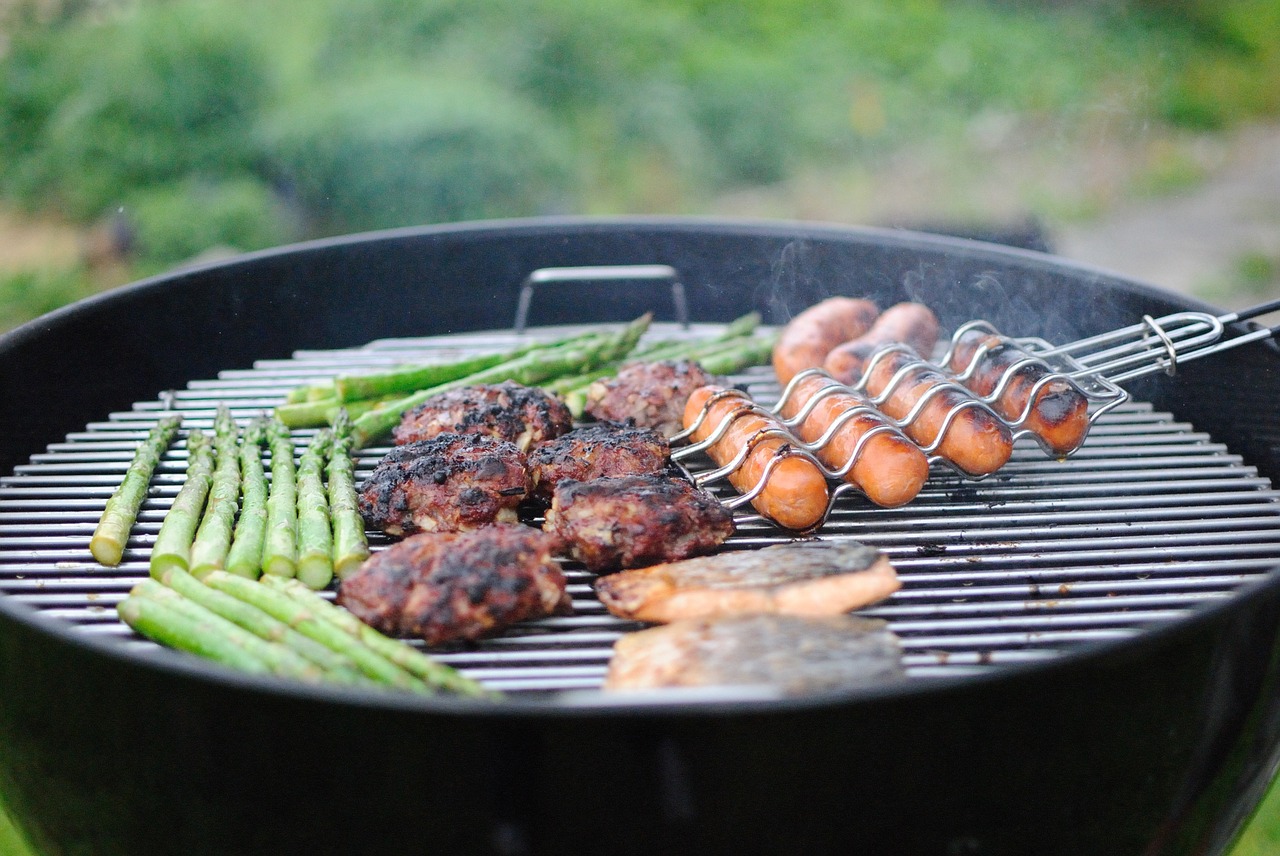As we’re deep in the heart of summer, backyard BBQs and outdoor picnics are in full-swing. Barbecuing also means being careful and learning how to avoid food poisoning.

The CDC estimates 48 million people get sick, 128,000 are hospitalized, and 3,000 die from foodborne diseases each year in the United States. Though the problem may seem unpredictable, it’s entirely preventable. Stay away from sickness during your summer festivities with these tips!
1. Avoid Cross-Contamination
The transfer of bacteria from one place (typically meat) to another (such as hands or utensils) is a common culprit of food-borne illness. Uncooked meat and fish are full of juices, and if these juices come into contact with other foods, they can spread bacteria and cause food poisoning. Avoid the chances of raw juices mixing with other foods by using separate cooking and cleaning plates and utensils before reuse.
2. Use a Food Thermometer
While many of us like our burgers and steaks on the pink side, a food thermometer is a great way to avoid food poisoning. To be confident the meat is completely cooked inside and out, stick a thermometer into the thickest part of the meat and familiarize yourself with the USDA’s standard cooking temperatures:
- Whole and ground poultry should be cooked to 165 degrees Fahrenheit
- Ground meats (such as burgers) should be cooked to 160 degrees Fahrenheit
- Beef steaks and chops should be at least 145 degrees Fahrenheit
- Fish will become flaky when cooked throughout, but make sure the temperature reaches 145 degrees Fahrenheit
Once the temperature reads the recommended temperature, it’s safe to pile on the veggies; you should never add vegetables to the meat before it’s thoroughly cooked.
3. Don’t Leave Leftovers Out
It may seem like common sense, but always remember this general rule of thumb: Keep hot foods hot and cold foods cold. To do so, keep hot food on the grill or in a warming dish until it’s ready to be served. Likewise, cold foods such as potato salads, deviled eggs, and dips should be kept cool and clear of bacteria by using ice blocks inside coolers or large containers.
4. Watch for Flies
It’s no surprise that flies and other pesty insects are likely to show up at your outdoor gatherings this summer. But, flies and other insects should be regarded as more than a nuisance at outdoor meals—they can be a health risk. Flies are infamous germ carriers and can spread illness-causing bacteria and viruses simply by landing on your food.
To keep annoying bugs from spreading germs, be sure to keep foods covered with airtight lids, clean up spills immediately, and throw away food that a fly lands on to be safe.
5. Keep Everything Clean
Food poisoning can cause abdominal cramps, vomiting, nausea, and fever. If you want to avoid these nasty symptoms, keep everything clean when preparing and cooking food. This means giving the BBQ smoker, gas grill, or charcoal grill a thorough clean before using. Cooking utensils and wire brushes should also be cleaned before starting your summertime BBQ.
Additionally, washing your hands is essential when preparing raw foods. Never prepare raw chicken and then slice some fresh veggies immediately after. Wash your hands in-between food prep and cooking.
Visit Voyage Healthcare if You Get Sick
Mild cases of food poisoning usually pass on their own and can be treated with fluids and rest. However, certain foodborne germs such as E. coli, Botulism, and Listeria can cause serious illnesses. Visit one of our walk-in clinics if your symptoms last longer than three days or if you experience any of the following symptoms:
- High fever
- Bloody diarrhea or dark stools
- Prolonged or bloody vomiting
- Signs of dehydration (dry mouth, dizziness, reduced urination)